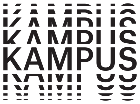Co robimy
Our methods
Who we are
Team
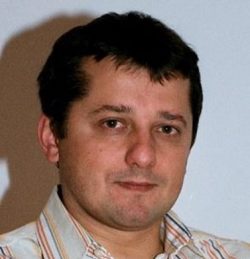
Radosław Antczak
Institute of Statistics and Demography
Warsaw School of Economics
Economist and sociologist with extensive experience in data analysis and statistics. Currently working at SGH Warsaw School of Economics, Institute of Statistics and Demography as an Assistant Professor. His research interests are focused on social and economic determinants of health and well-being of older persons in an international perspective, and other topics related to population ageing. He is teaching statistics, research methods, and quantitative data analysis. Radoslaw is proficient in use of the statistical packages as well as in applying advanced statistical modelling. Previously he worked as a Consultant in Central Statistical Office of Poland, and as a Research Fellow at University of Southampton. He has also experience in various research projects related to evaluation of national and local social policies.
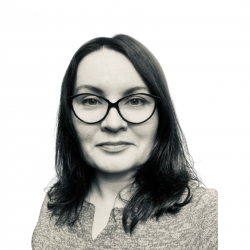
Katarzyna Archanowicz-Kudelska
Institute of Infrastructure, Transport and Mobility
Warsaw School of Economics

Nuria Castell
NILU - Norwegian Institute for Air Research
Dr Nuria Castell is a senior scientist at NILU, the Norwegian Institute for Air Research and chair of the air quality working group at the European Citizen Science Association. Nuria has more than 20 years of experience in air pollution research with an emphasis on air quality monitoring and modelling on urban and regional scales. Her current research focuses on the exploitation of novel monitoring technologies to complement existing monitoring systems in the characterisation and assessment of indoor and outdoor air pollution. She is leading and involved as the main researcher in interdisciplinary projects in the areas of behavioural change, social anthropology, urban planning, product design and art. She is passionate about co-creation processes and multi-stakeholder engagement, and she is exploring new ways of using citizen science to both monitor the environment and increase environmental action.
➔ORCiD
➔Google Scholar
➔Personal Website

Arkadiusz Drabicki
Cracow University of Technology
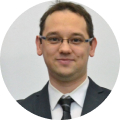
Paweł Gora
Faculty of Mathematics, Informatics and Mechanics, Faculty of Sociology
the University of Warsaw
Mathematician and Computer Scientist, PhD Candidate at the Faculty of Mathematics, Informatics and Mechanics of the University of Warsaw. He has more than 12 years of experience in the intelligent transportation systems domain, worked on projects related to modelling and simulation of transportation networks, traffic management, carpooling, bike-sharing, electric vehicles, connected and autonomous vehicles, intelligent parking systems, optimising logistics. He built a microscopic traffic simulation software, Traffic Simulation Framework, and used it for experiments with AI optimising traffic signal settings in the project TensorCell aiming to optimise complex processes. He co-founded a startup Broomee Technologies developing software for vanpooling services.
➔ORCiD
➔Google Scholar
➔Personal Website
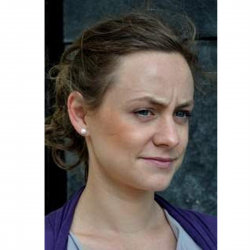
Katarzyna Górkiewicz
"On-site" Foundation

Maciej Grzenda
Faculty of Mathematics and Information Science
Warsaw University of Technology
Maciej Grzenda is an associate professor at the Warsaw University of Technology (WUT). His interests are focused on Big Data analytics and machine learning (ML) with emphasis on applications of ML in smart city and production systems. He has published papers inter alia in Journal of Intelligent Manufacturing and Data Mining and Knowledge Discovery. He has project management experience in academia and IT/telco industry as well as PMP and PRINCE2 Practitioner certificates. Maciej Grzenda is the head of the Program Committee managing Data Science studies at WUT and a member of Program Committees of international conferences incl. PAKDD and IEA/AIE.
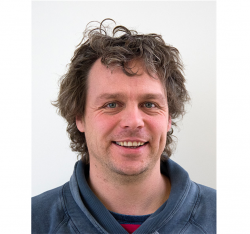
Henrik Grythe
NILU - Norwegian Institute for Air Research
Dr Henrik Grythe is since 2017 a scientist at NILU, the Norwegian Institute for Air Research. He has his PhD in atmospheric physics from Stockholm University, where he worked with problems related to quantifying emission sources, dispersion and removal of both natural and anthropogenic aerosol particles. His current work at NILU includes model development of emission and atmospheric models, with the main focus on quantifying emissions. He has had a leading role in work developing several new methods and models for quantifying emissions of both climate and air pollution relevant species on a high temporal and spatial resolution.
➔ORCiD
➔Personal website
➔Google Scholar
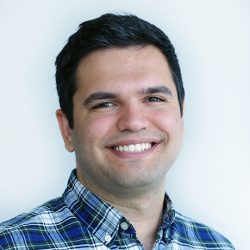
Amirhossein Hassani
NILU - Norwegian Institute for Air Research
Amirhossein Hassani, PhD in Environmental Engineering and with a background in Petroleum Engineering, is currently a researcher at the Norwegian Institute for Air Research (NILU). His research is focused on developing data-driven tools to inform policymaking and identify monitoring solutions that enhance the resilience of societies and ecosystems to future environmental challenges. He is interested in research across different disciplines, particularly the application of Earth System Science Data to tackle the current and future social, economic, and environmental challenges. The output of his research will be of great societal relevance and will support research, policy making, and citizen science.
➔ORCiD
➔Google Scholar
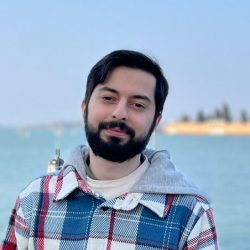
Shahriar Akhavan Hezaveh
Faculty of Economic Sciences
University of Warsaw
Shahriar is a Ph.D. candidate in Quantitative Psychology and Economics at the University of Warsaw. He studies strategic decision-making using laboratory and computational experiments and has a keen passion for combining psychology and complexity methods with economics research. In his free time, he enjoys watching theatre, reading poems, and hanging out with friends.
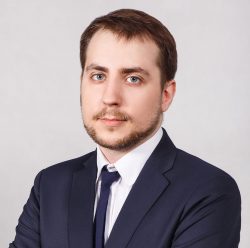
Szymon Horosiewicz
Lublin City Office
Sub-inspector in the Strategy and Smart City Department in the Strategy and Entrepreneurship Department of Lublin City Office. A graduate of Economics and Spatial Management at the John Paul II Catholic University. A specialist in intelligent projects in the field of broadly understood urban mobility. An implementer of projects financed by EIT Urban Mobility, the largest European initiative within the European Institute of Innovation and Technology, aimed at creating system solutions for sustainable urban mobility. In his professional work, he is responsible for analytical work on the degree of implementation of the smart city concept in Lublin, services for external entities and international networking activities.
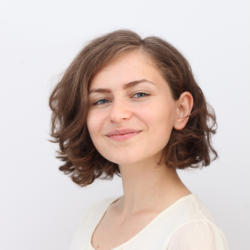
Joanna Jaczewska
Wydział Nauk Społecznych
Faculty of Social Sciences
Sociologist, urban planner and GIS data analyst. She is an assistant at the Institute of Socio-Economic Geography and Spatial Management of the University of Gdańsk. Her research interests focus on social participation, sustainable development, walkability and residents’ quality of life. She specialises in data analysis using Python and R and conducts courses and training in spatial data analysis in QGIS and ArcGIS PRO. She gained experience working in various sectors as a social researcher and coordinator of participatory processes. Currently, she is working on a doctoral thesis in environmental psychology, examining the relationship between the objective attributes of the living environment and the quality of life.
➔ORCiD
➔Google Scholar
➔ResearchGate

Michał Jakubczyk
Decision Analysis and Support Unit
Warsaw School of Economics
Michał Jakubczyk is an associate professor at the Decision Support and Analysis Department at the SGH Warsaw School of Economics. His research interests focus on health preference research and health technology assessment (HTA). He is a member of the EuroQol Group and the International Academy of Health Preference Research. Michał is an appreciated lecturer in the area of decision analysis at the undergraduate, graduate, and MBA levels. He is also a practitioner in HTA: for over 10 years he has been a co-owner of the HealthQuest (http://www.healthquest.pl).
➔ORCiD
➔Personal website

Magdalena Kubecka
"On-site" Foundation
Magda Kubecka works as an urban and a cultural researcher, a placemaker and an educator, facilitator of local actions in public spaces. She is a Vice-President of On-site Foundation aiming to strengthen local communities by creating inviting public spaces. She is a co-founder of the Initiative “How the City Works“ focused on education on cities life. Magda is also a member of the Editorial Board of “Cities Magazine” and a blogger. She teaches at the School of Ideas at the SWPS University of Social Sciences and Humanities.
➔Blog
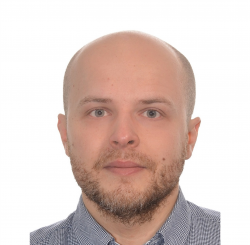
Robert Kunicki
Faculty of Mathematics and Information Science
Warsaw University of Technology

Grzegorz Kula
Faculty of Economic Sciences
the University of Warsaw
Economist, assistant professor. He works on the efficiency of the public sector, taxation, public finances and population ageing and is particularly interested in the local context of ageing and its challenges for municipalities’ finances. He coordinates research-based education activities in six European universities aligned in 4EU+. He is associated with the University of Warsaw for generations.
➔ORCiD
➔Personal website

Marcin Luckner
Faculty of Mathematics and Information Science
Warsaw University of Technology
Marcin Luckner works at the Faculty of Mathematics and Information Science, Warsaw University of Technology. He has published about 50 papers on machine learning, pattern recognition and artificial intelligence and their applications. He has managed Research and Development projects for business on behalf of the academic research centre, including several projects focused on analysing urban data.
➔ORCiD
➔ResearchGate
➔Google Scholar
➔LinkedIn

Anna Nicińska
Faculty of Economic Sciences
the University of Warsaw
Anna Nicińska is interested in the process of individual ageing from a behavioural and institutional economics perspective. Her research examines the formation of preferences and habits, end of life, intergenerational transfers transmitted during life and after death, and help received from relatives and unrelated persons. She is currently researching the impact of communism on attitudes and behaviour in later life and urban ageing.
➔ORCiD
➔Personal website
➔LinkedIn
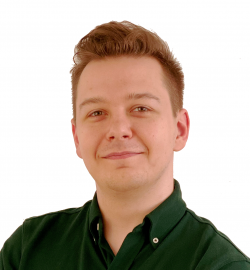
Mateusz Pietrkiewicz
Doctoral School WUT
Warsaw University of Technology
Mateusz Pietrkiewicz graduated from the Faculty of Electronics and Telecommunication at Poznan University of Technology (bachelor of engineering, 2017) and Faculty of Informatics and Digital Economy at Poznan University of Economics and Business (bachelor of science, 2018). In 2020 he obtained a master of data science degree at the University of Southampton (United Kingdom), and afterwards he has started his PhD research at Warsaw University of Technology. Concurrently to his academic activities, he has been gathering professional experience, working for companies like McKinsey & Company or Accenture. Currently, he is a Data Scientist at EPAM Systems, where he develops machine learning models. His main research interests are machine learning models for streaming and partially labelled data.
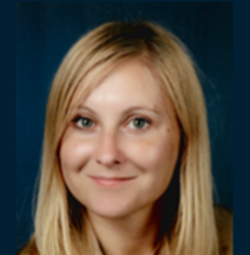
Katarzyna Nosal Hoy
Cracow University of Technology

Joanna Rachubik
Faculty of Economic Sciences
the University of Warsaw
PhD candidate in an interdisciplinary program in Quantitative Psychology and Economics led jointly by the Faculty of Economic Sciences, the Faculty of Psychology, and the Faculty of Mathematics, Informatics and Mechanics at the University of Warsaw. She is a researcher in behavioural and experimental economics and an academic teacher at the Faculty of Economic Sciences. Her research interests include decision-making, preferences, rationality, and cognitive biases; economic laboratory and field experiments.
➔Google Scholar
➔LinkedIn

Satia Rożynek
Faculty of Economic Sciences, DELab
the University of Warsaw

Pål Wilter Skedsmo
Fridtjof Nansen Institute
Pål Wilter Skedsmo is a social anthropologist (PhD) and research director of the Marine and Polar issues research group at FNI. His main research interests are environmental politics, civil society, public participation, democratisation and development aid in post-socialist states. Geographically, his research has especially focused on Armenia, the South Caucasus, Russia, and more recently Poland. He has carried out a number of program evaluations of Norwegian and Western support mechanisms in the region, ranging from cultural exchange programs to deployment of security personnel in conflict zones. New areas of interest are the management of plant genetic resources in the post-Soviet area and new modes of mobility in urban development.
➔ORCiD
➔Twitter
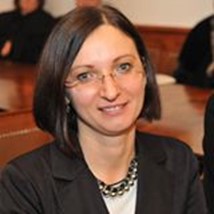
Katarzyna Solecka
Cracow University of Technology

Gabriela Sousa Santos
NILU - Norwegian Institute for Air Research
Gabriela Sousa Santos graduated in Environmental Engineering from the University of Aveiro, Portugal (1998), with a specialisation in toxicology from the same institution. She holds a PhD in Atmospheric Chemistry from the University of Hamburg (2008). She has long experience with numerical atmospheric modelling and has worked with several chemical transport, climate and dispersion models since 2002. In the period 2009-2013, she was at ETH Zurich in Switzerland where she worked on aerosols and climate issues. In February 2014, she was employed as a researcher at NILU and is part of the model group at the Department for Urban Environment Industry.

Adam Suwiński
"Excellence Initiative – Research University" Program
the University of Warsaw
Adam Suwiński is a science manager in the „Excellence Initiative – Research University” program. He is responsible for coordinating work packages of the program in the field of social sciences. His duties include monitoring the implementation of activities and coordinating reporting under POB V (Priority Research Area V), as well as supporting the management of selected research projects.
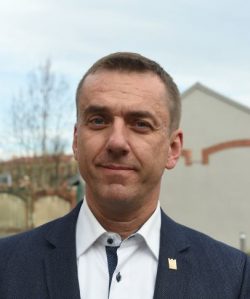
Andrzej Szarata
Cracow University of Technology

Michał Szostek
"Excellence Initiative – Research University" Program
the University of Warsaw
He supports the project as a research manager working at the “Excellence Initiative – Research University” programme of the University of Warsaw. By training, he is a sociologist and has former experience in the fields of knowledge management, strategic planning and evaluation.

Marta Trakul – Masłowska
"On-site" Foundation
Marta is a sociology and political science graduate, who specialises in creating good public spaces and solutions for active ageing. Founder of On-site Foundation aiming to strengthen local communities by creating inviting public spaces. She is a co-founder of the Initiative “How the City Works“ focused on education on cities life.
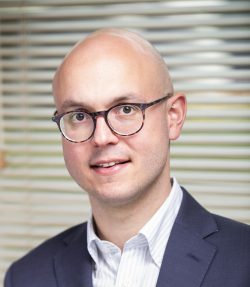
Michał Wolański
Warsaw School of Economics
Institute of Infrastructure, Transport and Mobility
Researcher and advisor with twenty years of experience in the economics of transportation and infrastructure, sustainable mobility, and evaluation. He runs his own research company Wolański Ltd. and is an assistant professor at the Warsaw School of Economics. Scholar at leading transport economics institutes in the United Kingdom and Australia. Consultant for, among others, the World Bank, European Investment Bank, the Polish Ministry of Funds and Regional Policy, and collaborator of leading international consulting firms. Co-founder of the start-up KOLEO – the best Polish independent platform for selling train tickets. Currently – project manager supporting Polish agglomerations in preparing sustainable urban mobility plans, commissioned by the Center for EU Transport Projects. In his free time, he is also a city bus driver.
➔Personal website
➔Google Scholar

Dorota Wolińska
Lublin City Office
Maria Curie-Skłodowska University in Lublin
Coordinator of the Strategy and Smart City Division in the Strategy and Entrepreneurship Department in Lublin City Office. Graduate of Spatial Planning at Maria Curie-Skłodowska University in Lublin. Author of publications on spatial development and smart city. Responsible for conducting analyses and assessments of the situation of the city of Lublin in terms of the use and implementation of smart solutions, as well as for establishing cooperation with domestic and foreign organisations and networks of entities operating in the smart city area. Executes and supervises the implementation of international projects financed from external funds, including Horizon 2020 and NCBR. Involved in the preparation of assumptions and updates of strategic documents of the Lublin municipality.
➔ResearchGate
➔Personal website
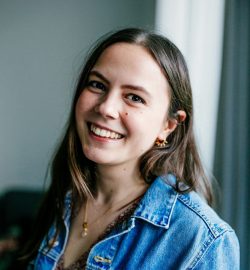
Katarzyna Zagórska
Faculty of Economic Sciences
University of Warsaw
Katarzyna is a PhD candidate and junior researcher at the Chair of Microeconomics, University of Warsaw. Since 2014 she has been working in projects examining preferences for public goods, policies and pro-social behaviours using experimental methods. Her research interests cover behavioural environmental economics; she is interested in motivations, incentives and provision of information that promote desirable behaviour change.
➔ORCiD
➔ResearchGate
➔Google Scholar

Jakub Zawieska
Institute of Infrastructure, Transport and Mobility
Warsaw School of Economics
Jakub Zawieska (PhD) works as an assistant professor at the Institute of Infrastructure, Transport and Mobility at Warsaw School of Economics (SGH). Jakub’s research interests focus on the evolution of the smart city concept, sustainable urban mobility, travel behaviour, socio-economic impact aspects of sustainable development. Jakub is also interested in sustainable mobility policy measures and governance, the development of technology-driven smart mobility, as well as the implementation of disruptive technologies and innovative business models in transport sectors in cities. In 2017 he obtained a PhD in Economics at SGH, Warsaw School of Economics, for the dissertation entitled “Smart cities in Poland and goals of European Union’s transport policy”. The PhD study investigated the potential contribution of smart city solutions and their impact on future transport-related GHG emission levels. The dissertation was awarded inter alia by the 2018 European Friedrich-List-Award 2018 and 2017 Warsaw Diplomas (“Dyplomy dla Warszawy”).
➔ORCiD
➔Google Scholar

Ewa Zawojska
Faculty of Economic Sciences
the University of Warsaw
Assistant professor at the Faculty of Economic Sciences at the University of Warsaw. Her research interests include non-market valuation, consumers’ preference elicitation and, in general, microeconomics. She focuses on the use of survey methods to estimate values of non-market public goods, and, in particular, how the survey design can be enhanced to increase the validity and reliability of the estimates.
➔ORCiD
➔Publons
➔ResearchGate
➔Google Scholar
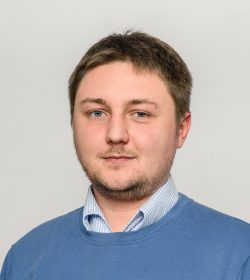
Damian Zięba
Institute of Infrastructure, Transport and Mobility
Warsaw School of Economics
Teaching assistant at the Institute of Infrastructure, Transport and Mobility of Warsaw School of Economics and PhD student at the Faculty of Economic Sciences of University of Warsaw (WNE UW). He works mainly as data analyst, statistician and econometrician using Python and R. For 3 years he has worked in the transport industry, being part of multiple projects focusing on optimization of various elements of logistic processes. His academic career started at DELab UW, where he developed his interest in digitalization and entrepreneurship. Currently, he cooperates with startups, both in terms of programming as well as business development. Scientifically, he conducts research on the dynamics of cryptoasset market, as he publishes and reviews articles in reputable scientific journals.
➔ORCiD
➔Google Scholar

Robert Żyśko
Urząd Miasta Lublin
Lublin City Office
Deputy Director for Strategy, Academic Affairs and Smart City in the Strategy and Entrepreneurship Department of Lublin City Office. Completed Master’s degree in economics and Bachelor’s degree in finance and accounting (specialisation: financial markets) at Maria Curie-Skłodowska University in Lublin, as well as doctoral studies at the Faculty of Economics of Maria Curie-Skłodowska University in Lublin. Author of publications on financial markets, development of local government units and functioning of enterprises in the market. An expert in strategic management, urban strategies and policies. Author and co-author of several strategic documents of Polish self-governments, including the most important document of the city of Lublin – Lublin 2020 Strategy. Manager of the project “Let’s invent Lublin together. Participatory creation of an intelligent Lublin Strategy 2030. Successively develops cooperation between the city and universities, involving Lublin scientific centres in many strategic projects of the city, including those related to smart city. Hobbyist “after hours” stock market investor. Amateur of travelling, gardening and culinary experiments.
Consorcium
Project Leader
a.nicinska@delab.uw.edu.pl
Partners
ncb@nilu.no
pskedsmo@fni.no
m.grzenda@mini.pw.edu.pl
michal.wolanski@sgh.waw.pl
magda.kubecka@namiejscu.org
dorota.wolinska@lublin.eu
Co-organiser
- Biuro Cyfryzacji Miasta
- Biuro Infrastruktury
- Biuro Edukacji
- Biuro Administracji i Spraw Obywatelskich
- Biuro Zarządzania Ruchem Drogowym
- Biuro Geodezji i Katastru
- Biuro Marketingu Miasta
- Biuro Ochrony Powietrza i Polityki Klimatycznej
- Biuro Strategii i Analiz
- Centrum Komunikacji Społecznej
- Zarząd Dróg Miejskich
- Zarząd Transportu Miejskiego
- Miejska Pracownia Planowania Przestrzennego i Strategii Rozwoju
Cooperation
Funding
CoMobility benefits from a 2.05 million € grant from Iceland, Liechtenstein and Norway through the EEA Grants. The aim of the project is to provide a package of tools and methods for the co-creation of sustainable mobility in urban spaces.
Funding: EEA Grants
The EEA Grants represent the contribution of Iceland, Liechtenstein and Norway towards a green, competitive and inclusive Europe. There are two overall objectives: reduction of economic and social disparities in Europe, and to strengthen bilateral relations between the donor countries and 15 EU countries in Central and Southern Europe and the Baltics. The three donor countries cooperate closely with the EU through the Agreement on the European Economic Area (EEA). The donors have provided €3.3 billion through consecutive grant schemes between 1994 and 2014. For the period 2014-2021, the EEA Grants amount to €1.55 billion.
The priorities for this period are:
- Innovation, Research, Education and Competitiveness;
- Social Inclusion, Youth Employment and Poverty Reduction;
- Environment, Energy, Climate Change and Low Carbon Economy;
- Culture, Civil Society, Good Governance and Fundamental Rights;
- Justice and Home Affairs.
The EEA Grants are jointly financed by Iceland, Liechtenstein and Norway, whose contributions are based on their GDP. Eligibility for the Grants mirrors the criteria set for the EU Cohesion Fund aimed at member countries where the Gross National Income (GNI) per inhabitant is less than 90% of the EU average.





















